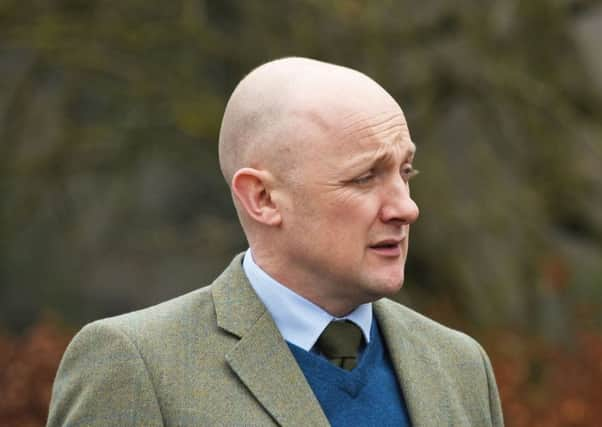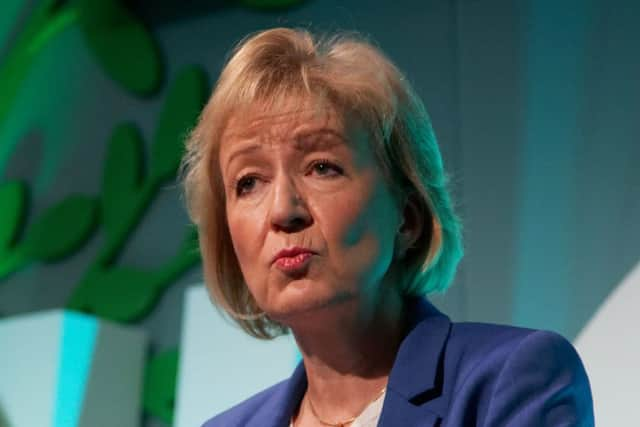Concerns over '˜one size fits all' farm policy post-Brexit
This article contains affiliate links. We may earn a small commission on items purchased through this article, but that does not affect our editorial judgement.


The party’s Defra spokesman, Calum Kerr, said significant questions needed to be answered on the future of agriculture once the UK had left the European Union – but that so far the government had failed to come up with solutions.
Speaking at the Oxford Farming Conference, Kerr said Brexit raised huge issues around the movement of people, farm support payments, food security, and trade.
Advertisement
Hide AdAdvertisement
Hide AdHe said: “Hope is not a strategy. There are big, fundamental questions to be addressed. We need to acknowledge the complexities of the situation and come up with a solution.”


Kerr’s comments came after Defra farm minister George Eustice told the conference a UK-wide framework was needed to help the government create policies that worked across the country.
“The devolution settlement was in an era when everything was decided in Brussels,” he said.
“We need to work in co-operation with the devolved administrations to work out what kind of UK framework we need to make sure there’s as much discretion as possible to create policies that work for them. We need a UK framework to replace what’s decided at EU level now.”


Under the new system, Eustice said existing Pillar 1 support would come to an end in 2020, and farmers would instead receive payments for carrying out environmental measures.
“If subsidies equal direct payments, of course we want to move away from that,” he said.
“We want support to help farmers improve productivity, and target the support at active farmers. We can design a system design a system which does that.”
However, Kerr said Brexit should be used as an opportunity to design a fit-for-purpose replacement for Pillar 1.
Advertisement
Hide AdAdvertisement
Hide AdHe said: “We should provide more reassurance … We should commit to the same level of funding until we can argue farming is more profitable and subsidies are not required.”
He also told the conference that a UK-wide agricultural framework was not necessarily a good solution for the country.
“We should have different polices for different parts of the UK,” he said. “Repatriation of powers shouldn’t mean powers move from Brussels to London. We should consult as good neighbours should.”
‘Our best days are ahead’, insists Andrea Leadsom
In her first address to the Oxford Farming Conference, Defra secretary Andrea Leadsom pledged to cut red tape and scrap the controversial three-crop rule as part of the government’s overhaul of UK farm policy post-Brexit.
Leadsom said leaving the EU offered the government and farming industry a chance to reshape the future of UK food and farming, creating a system which encouraged innovation and increased production.
Speaking during the opening address of the conference, she said: “For too long, a bureaucratic system which tries to meet the standards of 28 countries has held farmers back. But now, leaving the EU means we can focus on what works best for the UK.”
Stating that the country’s best days as a food and farming nation lay ahead, she said the government would launch a green paper consultation on the future of food and farming post Brexit “as soon as possible”.
However, Liberal Democrat Defra spokeswoman Kate Parminter said: “Andrea Leadsom has said nothing about the two most important questions facing UK farmers: whether they will still have access to the single market and what subsidies they can expect to receive post-2020.”
Advertisement
Hide AdAdvertisement
Hide AdParminter said that warm words about wanting to increase British food exports would be meaningless if farmers were faced with a 50 per cent tariff on beef and a 30 per cent tariff on lamb sold to Europe.
And Keith Taylor MEP, the Green Party’s animals spokesman, was also critical, stating that the red tape which Leadsom had promised to cut was currently protecting the country’s rural environment, biodiversity, soil, and the welfare of farm animals.
